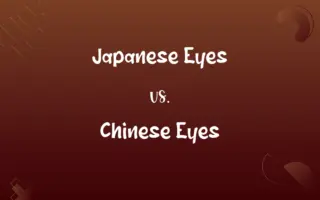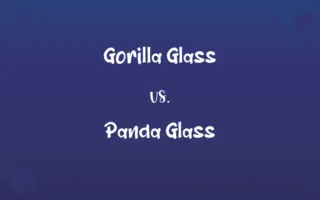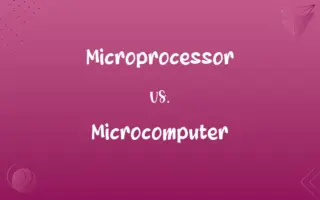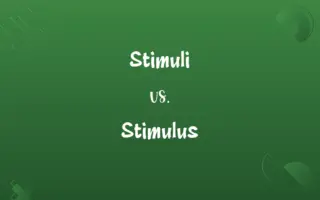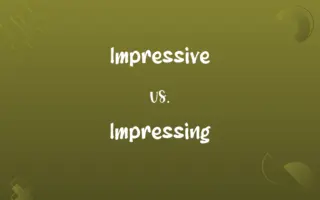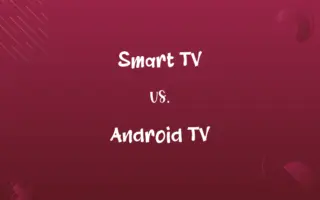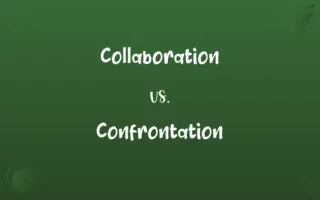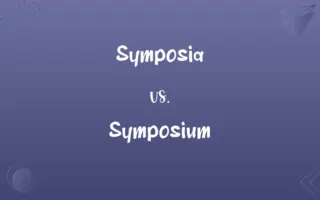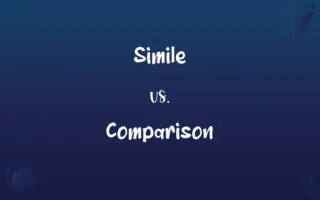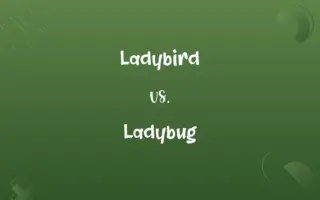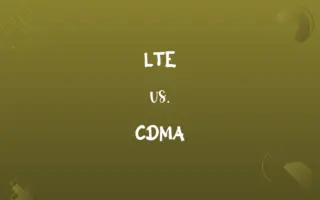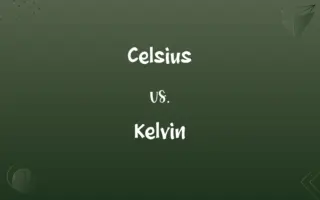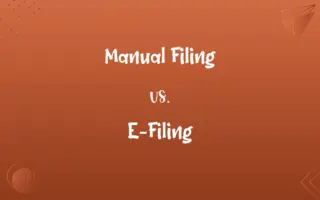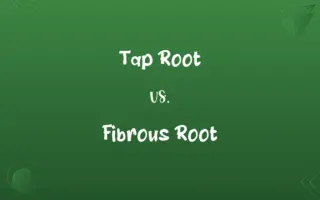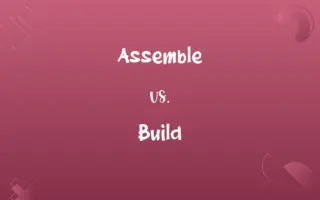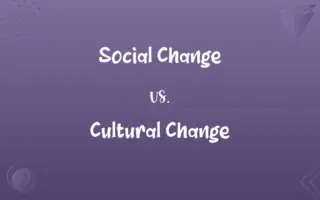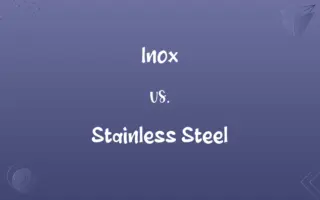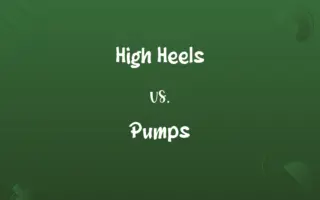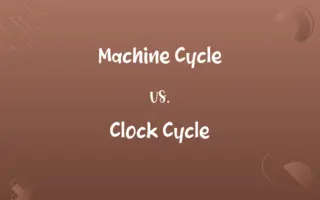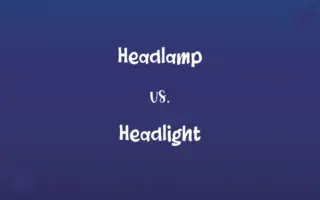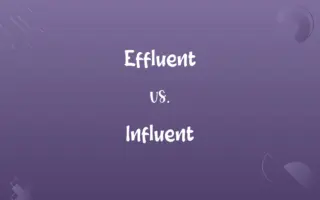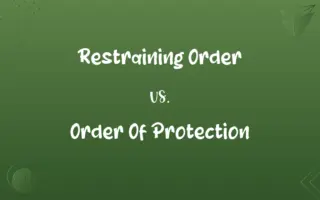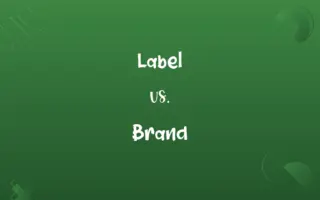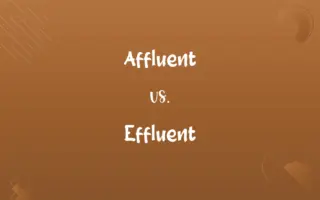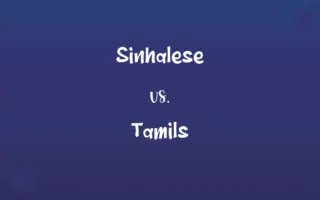Have To vs. Had To: Know the Difference

By Shumaila Saeed || Published on January 3, 2024
"Have to" implies a current or future obligation. "Had to" refers to a past obligation or necessity.

Key Differences
"Have to" is used to express a necessity or obligation in the present or future tense. It conveys that the action is mandatory. In contrast, "had to" is the past tense form of "have to," used to indicate an obligation that was necessary in the past.
Shumaila Saeed
Jan 03, 2024
In terms of grammatical structure, "have to" is adaptable to various subjects (I, you, we, they) by changing 'have' to 'has' for third-person singular (he, she, it). "Had to" remains constant regardless of the subject as it's already in the past tense.
Shumaila Saeed
Jan 03, 2024
The usage of "have to" often implies an external obligation, like rules or laws, whereas "had to" suggests a completed action that was necessary due to circumstances or external pressure in the past.
Shumaila Saeed
Jan 03, 2024
"Have to" can be modified to express different degrees of necessity (e.g., must have to, should have to) whereas "had to" is generally straightforward, reflecting a clear and often unavoidable past necessity.
Shumaila Saeed
Jan 03, 2024
"Have to" can be used in interrogative form to inquire about obligations (Do I have to?), while "had to" is used in questions about past obligations (Did you have to?).
Shumaila Saeed
Jan 03, 2024
ADVERTISEMENT
Comparison Chart
Grammatical Adaptation
Changes with subject (have/has)
Constant for all subjects
Shumaila Saeed
Jan 03, 2024
Usage in Questions
Inquiring about current/future obligations
Inquiring about past obligations
Shumaila Saeed
Jan 03, 2024
ADVERTISEMENT
Have To and Had To Definitions
ADVERTISEMENT
Had To
Past necessity for action
She had to leave early due to an emergency.
Shumaila Saeed
Dec 19, 2023
Repeatedly Asked Queries
Can "had to" indicate a choice?
No, "had to" implies a past necessity or obligation, not a choice.
Shumaila Saeed
Jan 03, 2024
Is "had to" used for past actions?
Yes, "had to" refers to actions that were necessary in the past.
Shumaila Saeed
Jan 03, 2024
How does "have to" change with different subjects?
"Have to" becomes "has to" with third-person singular subjects (he, she, it).
Shumaila Saeed
Jan 03, 2024
Can "have to" be used in questions?
Yes, "have to" can form questions about current or future obligations.
Shumaila Saeed
Jan 03, 2024
Is "had to" always about obligations?
Primarily, "had to" is used to talk about past obligations or necessities.
Shumaila Saeed
Jan 03, 2024
Can "have to" be used for strong recommendations?
Yes, it can imply a strong recommendation or advice.
Shumaila Saeed
Jan 03, 2024
Can "have to" imply external pressure?
Yes, "have to" often suggests external obligations or rules.
Shumaila Saeed
Jan 03, 2024
Does "had to" change with the subject?
No, "had to" remains the same regardless of the subject.
Shumaila Saeed
Jan 03, 2024
Is "have to" used for current obligations?
Yes, "have to" expresses present or future obligations.
Shumaila Saeed
Jan 03, 2024
Can "had to" refer to regretted actions?
Yes, it can imply actions that were reluctantly performed.
Shumaila Saeed
Jan 03, 2024
How is "had to" used in past tense narratives?
It's used to describe actions that were necessary or required in the past.
Shumaila Saeed
Jan 03, 2024
Does "have to" indicate a future action?
Yes, it can be used for obligations or necessities in the future.
Shumaila Saeed
Jan 03, 2024
Can "had to" be used in negative past tense sentences?
Yes, as in "didn't have to" to express a past absence of obligation.
Shumaila Saeed
Jan 03, 2024
Can "have to" be used in all tenses?
It's primarily used in present and future tenses.
Shumaila Saeed
Jan 03, 2024
Is "had to" appropriate for hypothetical past situations?
Yes, it can be used for real or hypothetical past obligations.
Shumaila Saeed
Jan 03, 2024
Is "have to" synonymous with "must"?
"Have to" is similar to "must," but sometimes "must" is stronger.
Shumaila Saeed
Jan 03, 2024
Can "had to" be used in formal writing?
Yes, it's appropriate in both formal and informal writing.
Shumaila Saeed
Jan 03, 2024
Is "have to" formal or informal?
It's neutral and can be used in both formal and informal contexts.
Shumaila Saeed
Jan 03, 2024
Does "had to" have a similar meaning to "must have"?
"Had to" is more about obligation, while "must have" suggests certainty about the past.
Shumaila Saeed
Jan 03, 2024
How is "have to" expressed in negative form?
By adding "not" as in "do not have to" or "does not have to."
Shumaila Saeed
Jan 03, 2024
Share this page
Link for your blog / website
HTML
Link to share via messenger
About Author
Written by
Shumaila SaeedShumaila Saeed, an expert content creator with 6 years of experience, specializes in distilling complex topics into easily digestible comparisons, shining a light on the nuances that both inform and educate readers with clarity and accuracy.



